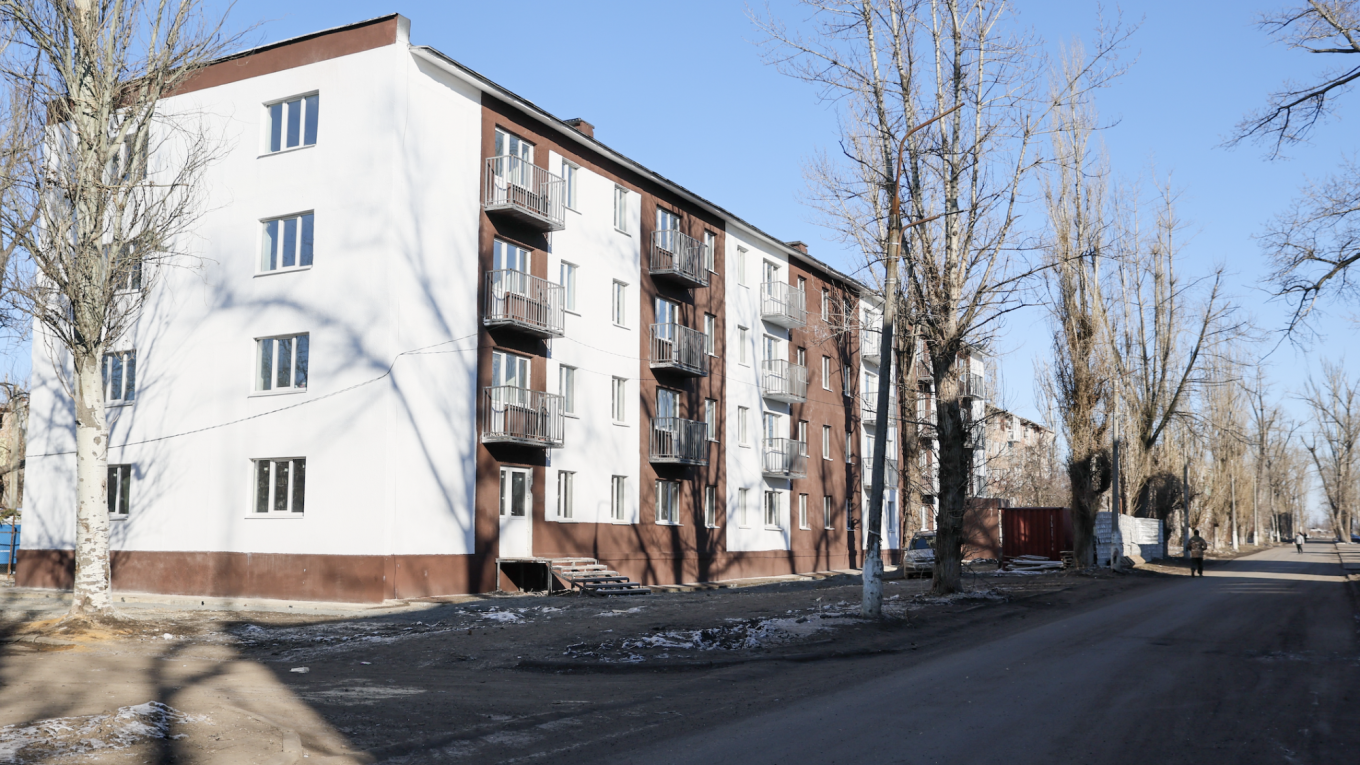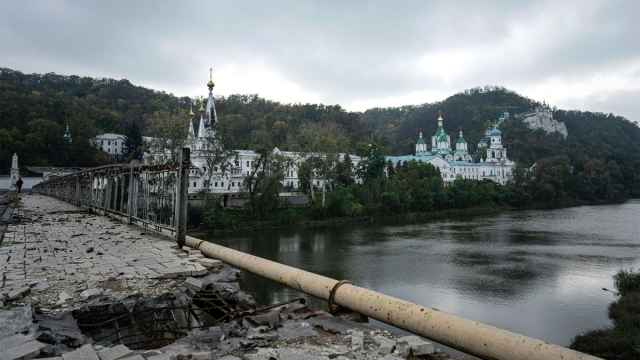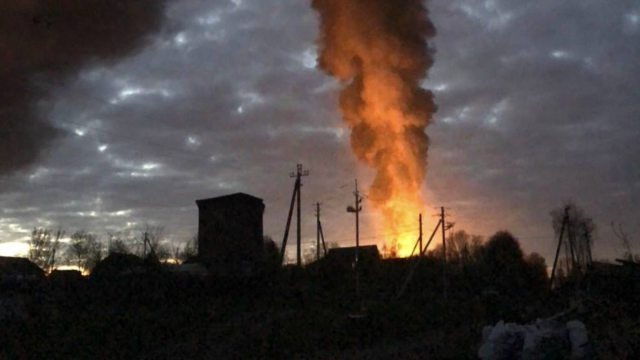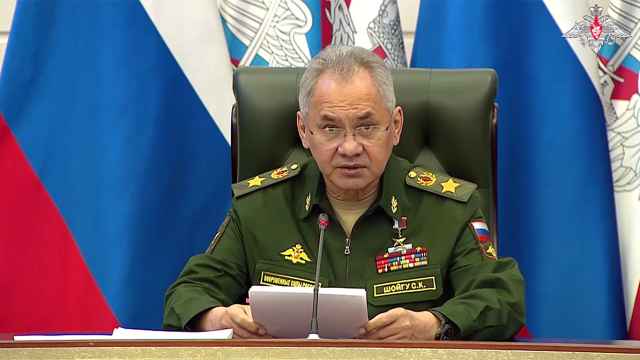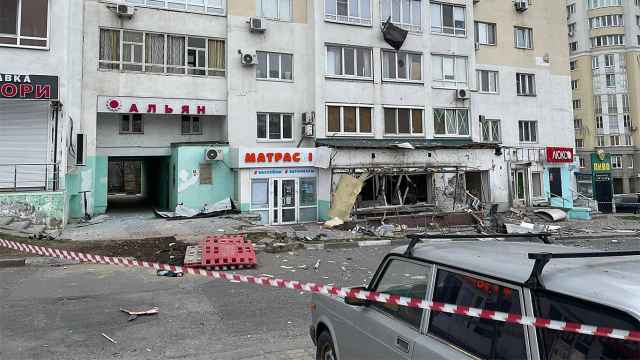Keith Kellogg, U.S. President Donald Trump's Special Envoy to Ukraine, suggested British and French troops could adopt zones of control in the country, in an interview with The Times newspaper published Saturday.
Kellogg suggested they could have areas of responsibility west of the Dnipro river, as part of a "reassurance force," with a demilitarized zone separating them from Russian-occupied areas in the east.
"You could almost make it look like what happened with Berlin after World War II, when you had a Russian zone, a French zone and a British zone, a U.S. zone," he said, later clarifying on X that the United States would not be providing troops.
"You're west of the (Dnipro), which is a major obstacle," Kellogg said, adding that the force would therefore "not be provocative at all" to Russia.
He suggested that a demilitarized zone could be implemented along the existing lines of control in eastern Ukraine, The Times said.
A retired lieutenant general and former acting national security advisor during Trump's first term, Kellogg, 80, said Ukraine was big enough to accommodate several armies seeking to enforce a ceasefire.
To make sure that British, French, Ukrainian and other allied forces do not exchange fire with Russian troops, Kellogg said a buffer zone would be needed.
"You look at a map and you create, for lack of a better term, a demilitarised zone (DMZ)," he said.
"You have a... DMZ that you can monitor, and you've got this... no-fire zone," said Kellogg.
But he added: "Now, are there going to be violations? Probably, because there always are. But your ability to monitor that is easy."
Russia launched its full-scale invasion of Ukraine in February 2022.
Kellogg admitted that Russian President Vladimir Putin "might not accept" the proposal.
'Reassurance force'
Kellogg later clarified his position, posting on X.
"I was speaking of a post-ceasefire resiliency force in support of Ukraine's sovereignty. In discussions of partitioning, I was referencing areas or zones of responsibility for an allied force (without U.S. troops). I was NOT referring to a partitioning of Ukraine," he said.
Britain and France are spearheading talks among a 30-nation "coalition of the willing" on potentially deploying forces to Ukraine to shore up any ceasefire Trump may strike.
London and Paris describe the possible deployment as a "reassurance force" aimed at offering Ukraine some kind of security guarantee.
But many questions remain unanswered, from the size of any force, to who would contribute, what the mandate would be and whether the United States would back it up.
Putin, in power for 25 years and repeatedly elected in votes with no competition, has often questioned Volodymyr Zelensky's "legitimacy" as president, after the Ukrainian leader's initial five-year mandate ended in May 2024.
Under Ukrainian law, elections are suspended during times of major military conflict, and Zelensky's domestic opponents have all said no ballots should be held until after the conflict.
"If you get to a ceasefire, you're going to have elections," said Kellogg.
"I think Zelensky is open to do that once you get to a ceasefire and once you get some resolution. But that's a call for the Ukrainian people in the Ukrainian parliament. Not ours."
Kellogg said relations between Ukraine and the United States were now "back on track", citing resumed talks over a proposed deal on Ukraine's mineral resources.
He said officials would try to turn a "business deal" into a "diplomatic deal" over the coming days.
A Message from The Moscow Times:
Dear readers,
We are facing unprecedented challenges. Russia's Prosecutor General's Office has designated The Moscow Times as an "undesirable" organization, criminalizing our work and putting our staff at risk of prosecution. This follows our earlier unjust labeling as a "foreign agent."
These actions are direct attempts to silence independent journalism in Russia. The authorities claim our work "discredits the decisions of the Russian leadership." We see things differently: we strive to provide accurate, unbiased reporting on Russia.
We, the journalists of The Moscow Times, refuse to be silenced. But to continue our work, we need your help.
Your support, no matter how small, makes a world of difference. If you can, please support us monthly starting from just $2. It's quick to set up, and every contribution makes a significant impact.
By supporting The Moscow Times, you're defending open, independent journalism in the face of repression. Thank you for standing with us.
Remind me later.


